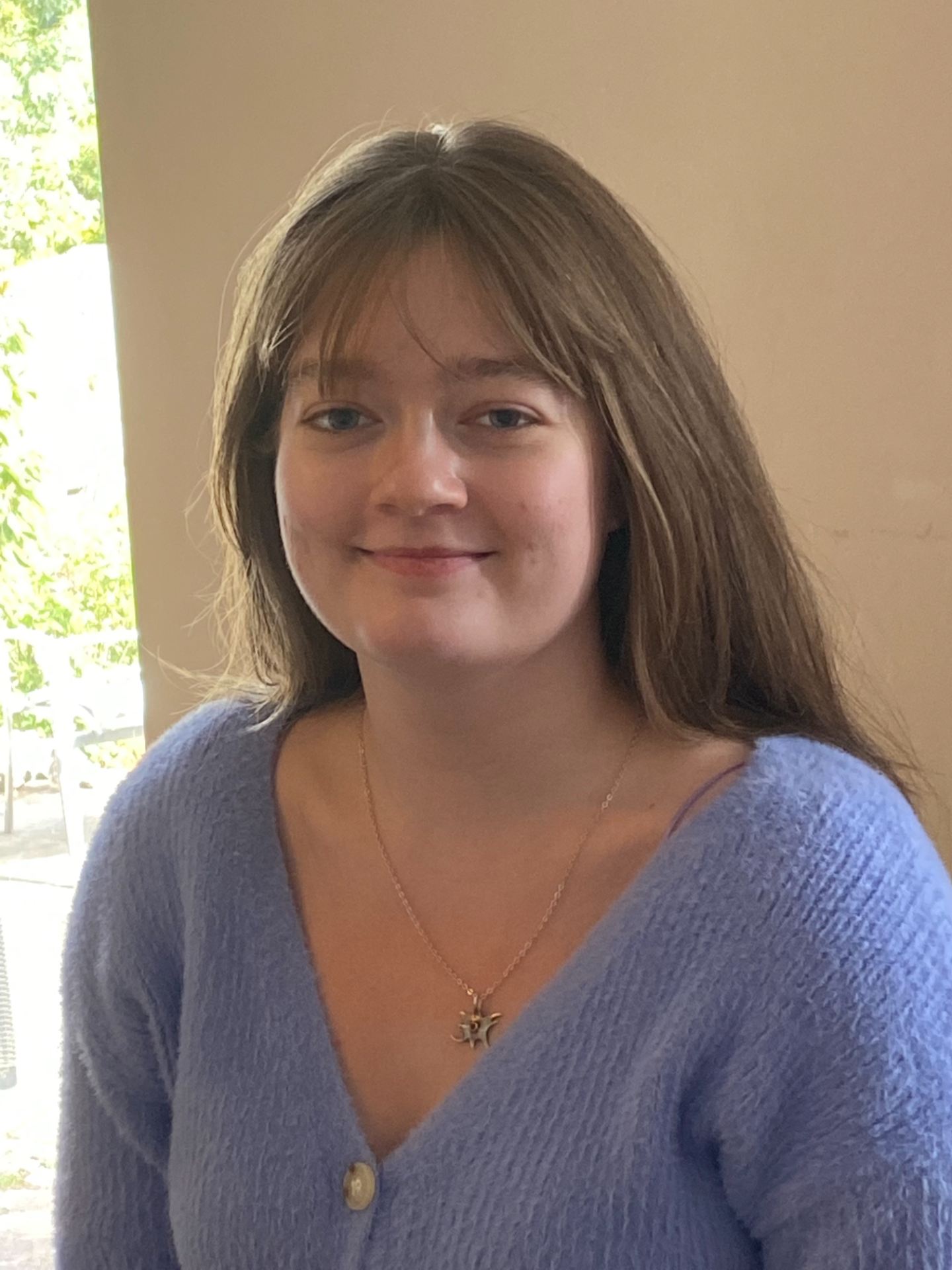Current Final Years
Current Third Years
Current Second Years
Current First Years
Current Final Years
Floris Honig
CASE studentship
Floris holds a BSc in Nanobiology and a MSc in Biomedical Engineering, both obtained at Delft University of Technology in the Netherlands. Following his studies, he worked as an advanced research assistant at the Wellcome Sanger Institute and the University of Cambridge, engaging in pluripotent stem cell-based approaches to study brown adipose tissue differentiation and activation. His main interests lie within the fields of biomaterials, stem cell biology and regenerative medicine.
Under supervision of Prof Adele Murrell and Dr Karim Malik, and in collaboration with biotech company bit.bio, Floris’ PhD project focuses on differentiated normal cell identity and the epigenetic barriers to trans-differentiation and reprogramming.
Anna Nicholas
Anna graduated from Cambridge University in 2012 with a degree in Natural Sciences. She then went on to work in the sustainability sector in London for six years before returning to academia to complete a MSc in Human Nutrition in 2019. She developed research interests in the role of nutrition in metabolic dysfunction and inflammation, and her master’s thesis explored the use of dietary and lifestyle strategies to reverse type 2 diabetes.
Her PhD will explore the interactions between diet and adipose tissue inflammation in ageing. It will involve both in vitro studies and ex vitro human trials and will take place in Bath under the supervision of Prof Dylan Thompson and Dr James Turner.
Shani Ali
Shani graduated from the University of Birmingham in 2022 with an MSc in Microbiology and Infection. In 2021 they started as a research technician in Dr. Tiffany Taylor’s lab. In this experimental microbiology group, Shani works with a post-Doc to produce data that will elucidate the mechanistic and environment-dependent biases in mutation that dictate the adaptive potential of evolving bacteria. This work fuelled their interest in evolutionary microbiology.
Shani’s Ph.D. focuses on attributing the source of antimicrobial-resistant diarrhoeal disease through the identification of genomic source markers.
Rachel Johnson
Rachel graduated from the University of York in 2017 with an MChem in Chemistry. Her final year project concerned activity-based profiling of mannosidase enzymes, under the supervision of Prof. Gideon Davies. Following graduation, Rachel worked for Evotec as a protein production scientist. This was followed by two-and-a-half years as a peptide chemist at PepGen, developing peptide-oligonucleotide conjugates for the treatment of neuromuscular disease.
Despite enjoying her time in biotech, Rachel decided to return to academia to further develop her skills in peptide chemistry and the wider biosciences – she will be supervised by Prof. Susanne Gebhard and Prof. Jody Mason. Her PhD project concerns the development of peptide inhibitors to disrupt bacterial cell signalling with the aim of overcoming antibiotic resistance.
Chidimma Gift Omenoba
Chidimma graduated from Abia State University, Nigeria in 2014 with a B.Sc. degree in Plant Science and Biotechnology. She carried on with a postgraduate B.Sc. Honours degree in Agriculture majoring in Plant Breeding at the University of the Free State South Africa and graduated in 2019. She further undertook her master’s project at the same university, under Dr. Angeline van Biljon’s supervision, where she investigated the influence of wheat bread-making gene on the gluten-protein fractions of South Africa bread wheat cultivars.
Her M.Sc. project fueled her passion to explore more in research on wheat genetics and breeding in other to contribute to the quest of ensuring global food security. She will be studying the epigenetic fate of introgressed DNA in the wheat genome under the supervision of Dr. Hans-Wilhelm Nuetzmann at University of Bath.
Meg Sambrook
Meg graduated from the University of Sussex in 2021 with an MSci Neuroscience (research placement). Her research projects focused on the cellular impact of Deep Brain Stimulation treatment of Parkinson’s disease. She developed a keen interest in understanding the cellular and molecular mechanisms underlying clinical treatments of nervous system dysfunction.
For her PhD project at the University of Bath, supervised by Dr Chris Bailey, Dr Robert Williams, and Professor Eamonn Kelly, Meg will study the functional roles of presynaptic opioid receptors. This multidisciplinary project will test several receptor subtypes in the investigation of a new class of opioids with the potential for higher potency and reduced side effects.
Meg Warden
Meg received a first-class BSc Bioscience from the University of Suffolk in 2021 and then completed her MSc Biomedical Sciences Research from University of Bristol. Meg’s interest in the skeletal system led her to choose her MSc project, where she looked at the roles of Wdr5 and Piezo1, known as high bone mass genes, in fracture repair and regeneration, using zebrafish as a model. She wanted to continue working with zebrafish, and for her PhD project, Meg shall be looking at the ancestral functions of genes regulated by imprinting in mammals. Genomic imprinting was believed to have evolved to act on genes that have a role in growth regulation and other developmental process. In this project, supervised by Prof. Andrew Ward and Prof. Robert Kelsh, we hope to show that Grb10 has a role in growth regulation in zebrafish.
Current Third Years
Jennika Bates
(she/her)
Jennika graduated from the University of York in 2023 with a MBiol in Biology. Her Integrated Masters project, supervised by Professor Betsy Pownall, investigated the expression of bHLH transcription factors that may have involvement in specification of skeletal muscle in developing Xenopus laevis embryos. This, alongside other modules throughout her degree, inspired her to pursue a PhD in developmental biology.
Jennika’s PhD project is supervised by Professor Robert Kelsh, Dr Beck Richardson and Dr Keith Vance and is based at the University of Bath. It will investigate the genotype-phenotype correlations of Sox10 mutations in the zebrafish. She will utilise a CRISPR-Cas9 protocol developed within the same supervisory team to create a series of zebrafish Sox10 alleles, to study the impacts of precise mutations on phenotype.
Ben Murcott
Ben graduated with a Masters in Bioinformatics from the University of Bath in 2021 then continued as a research assistant in Dr Vicky Hunt’s lab using bioinformatics to investigate transposable elements in the parasitic nematode Strongyloides ratti. This led to his interest in parasitism and the processes that allow successful infection of a host.
Ben’s PhD, supervised by Dr. Vicky Hunt, Dr. Cameron Weadick and Prof. Laurence Hurst, will investigate reproductive strategies in the parasite Strongyloides ratti, which can reproduce sexually or asexually. It will look into how environmental factors, for example temperature, might alter reproductive success and uncover differences in gene expression between Strogyloides reproductive strategies. Ultimately, this will help to understand Strongyloides’ reproduction, transmission dynamics and virulence.
Lucy White Stenner
Lucy graduated from the University of Exeter in 2022 with a BSc in Neuroscience with professional placement undertaken at the University of Bristol. Her professional placement project concerned studying ion channel formation between two similar yet distinct ion channel subunits. Outside-out patch electrophysiology of transfected tsA-201 cells revealed a unique pharmacological profile. Her final year project at Exeter involved the study of induced seizure-like brain states and the subsequent effect on microglial morphology, under the supervision of Dr Tom Ridler. Following graduation, Lucy studied her MSc in Molecular Biosciences (medical) at the University of Bath before continuing on at the university to do her PhD. Lucy will be supervised by Professor Jody Mason and Dr Robert Williams, where her PhD project concerns the development of peptide inhibitors of alpha synuclein, with the aim of reducing its aggregation and toxicity in disease.
Current Second Years
Ajay Elamaran
Ajay graduated from the University of Bath in 2023 with an M.Sc. in Bioinformatics. He also holds a Bachelor’s degree in Computer Science, giving him an interdisciplinary background that bridges his experience in the IT industry with life science research. During his master’s, he developed an interest in parasitic nematodes and nematomorphs while assisting with the de novo genome assembly of the first-ever nematomorph.
Ajay’s PhD, under the supervision of Dr Vicky Hunt at the University of Bath, focuses on the molecular and genetic basis of parasitism in nematodes. His research combines bioinformatics with lab-based approaches, including RNAi and CRISPR-Cas9, to study the genes involved in parasitism. He is passionate about uncovering host-pathogen interactions and uncovering gene expression specifically associated with parasitism.
Kelli Gallacher

(she/her)
Kelli graduated from UWE Bristol in 2014 with a BSc in Biomedical Science, where she found a love for research during a summer placement. She then completed an MRes in Medical Sciences at Newcastle University in 2016.
In the following years, she has worked as a research technician and assistant at the University of Bristol and University of Bath. In her most recent role, she investigated transcriptional regulation of epidermal stem cells and became fascinated with the complexities of skin biology, leading to her pursuing further research within this field.
Kelli’s PhD project is supervised by Dr. Keith Vance and Prof. Jody Mason and is titled: Enhancing MITF transcription factor activity using protein engineering to investigate melanocyte development and improve melanoma treatment.
Adam Harris
(he/him)
Adam graduated from the University of Bath with a BSc (Hons) Biochemistry in 2021. His studies included a 12 month placement at Vertex Pharmaceuticals where he developed a keen interest in early stage drug discovery. After graduating, Adam pursued this interest by joining Arctoris as a member of the biochemical screening and mechanistic enzymology department where he developed workflows for rapid onboarding of ~70 recombinant catalytic assays for high-throughput screening. Adam also worked on chemical hits with interesting mechanisms of target modulation including covalent inhibition.
Adam is returning to the University of Bath to pursue a PhD supervised by Dr Scott Lovell and co-supervised by Dr Maisem Laabei and Prof Jim Spencer. The PhD builds on Adam’s interest in mechanistic drug discovery by focusing on applying covalent cyclic peptide chemistry to overcome antibiotic resistance in methicillin-resistant Staphylococcus aureus and investigate the druggability of the bacterial protein, Lipoteichoic acid synthase.
Helene Rittscher
CASE studentship
(she/her)
Helene graduated from the University of Bath in 2024 with a BSc (Hons) in Biochemistry, focussing on cell signalling and plant biochemistry. During her degree, she completed a placement year at MOA Technology, an Oxford-based herbicide discovery start-up. Here, she applied techniques in molecular plant genetics to identify target proteins involved in novel herbicidal modes of action. For her dissertation, she worked in the lab of Dr. Volkan Cevik, combining these molecular techniques with bioinformatic analysis to map the protein-protein interactions involved in plant viral invasion and host immune response strategies.
Now at the University of Bristol, Helene will collaborate with Dr. Imogen Sparkes and her CASE partner MOA Technology to develop novel tools for studying organelle dynamics in plants, starting with the Golgi. This work could lead to novel herbicidal modes of action or help engineer crops to be more stress-resilient in a changing climate.
Adilia Shakirova
Studentship led by Rothamsted Research
A recent graduate from the inaugural cohort of the EU CONEXUS Joint Masters Programme in Marine Biotechnology, Adilia studied and researched in five European countries before joining the SWBio DTP. Her BSc thesis focused on the isolation and characterisation of a new marine bacterium-bacteriophage system; her MSc thesis focused on the use of inducible promoters to study metabolism in a thermophilic acetogenic bacterium. Her PhD project will be dedicated to researching compounds with antifungal activity produced by Pseudomonas species against wheat pathogens. This project will be conducted at Rothamsted Research following an initial placement at the University of Bath. Adilia is going to use bioinformatics tools to find biosynthetic gene clusters with putative antifungal activity in bacterial genomes, and then apply molecular biology and microbiology methods to test biological activity of the isolates. The project will also involve analytical chemistry methods applied to elucidate the structure of the bioactive molecules.
Jasmine Thomas-Campbell

Jasmine graduated from the University of Exeter in 2022 with an MSci degree in Conservation Biology and Ecology, where she specialised in the theme of evolution. She conducted her master’s project supervised by Prof. Camille Bonneaud, investigating variation in environmental persistence of the bacterial pathogen Mycoplasma gallisepticum and the relationship with virulence. This led Jasmine to develop an interest in host-pathogen co-evolution, specifically how pathogens respond to selection pressures arising from host adaptations and environmental factors.
Jasmine’s PhD project is supervised by Prof Tiffany Taylor, Prof Edze Westra and Dr Catherine Tooke. She will investigate how a novel innate defence system coined MADS and the CRISPR-Cas adaptive immune system provide synergistic levels of immunity against bacteriophage infection, in the WHO priority bacterial pathogen Pseudomonas aeruginosa. Her research aims to elucidate how antiviral defence systems are regulated and what environmental cues trigger their expression.
Current First Years
Amanda Vel

(she/her)
Amanda graduated from the University of York in 2025 with an MChem in Chemistry, during which she developed an interest in drug discovery and completed two synthesis-based summer internships. Amanda’s final year project, supervised by Dr Charlotte Willans, involved the design and synthesis of novel organometallic silver complexes to inhibit glycolysis for anticancer applications.
Amanda’s PhD project is supervised by Dr Scott Lovell and co-supervised by Dr Maisem Laabei and Prof. Jean van den Elsen. This work focuses on the use of covalent macrocycle libraries to combat antimicrobial resistance. Her research aims to use high-throughput methods to generate and identify an inhibitor for WalKR, an essential system for the growth of Staphylococcus aureus.
Lara Pearson

(she/her)
Lara graduated from the University of Bath in 2025 with a bachelor’s degree in Biology, during which she undertook a year long industrial work placement at the Center for Environment, Fisheries and Aquaculture Science. Here she worked in the ecotoxicology team where she tested Bisphenol-A, a restricted-use chemical known to cause endocrine disruption, to compare its environmental effects on marine species with those of its chemical substitutes.
She is now returning to Bath to begin her PhD under the joint supervision of Dr David Gurevich, Dr Barabara Kasprzyk-Hordern, Dr Charles Tyler (Exeter), and Dr Andrew Johnson (UK Centre for Ecology and Hydrology). Her project will investigate how chemical contaminants that evade the wastewater treatment process and enter UK rivers affect the inflammatory and tissue repair responses in fish



